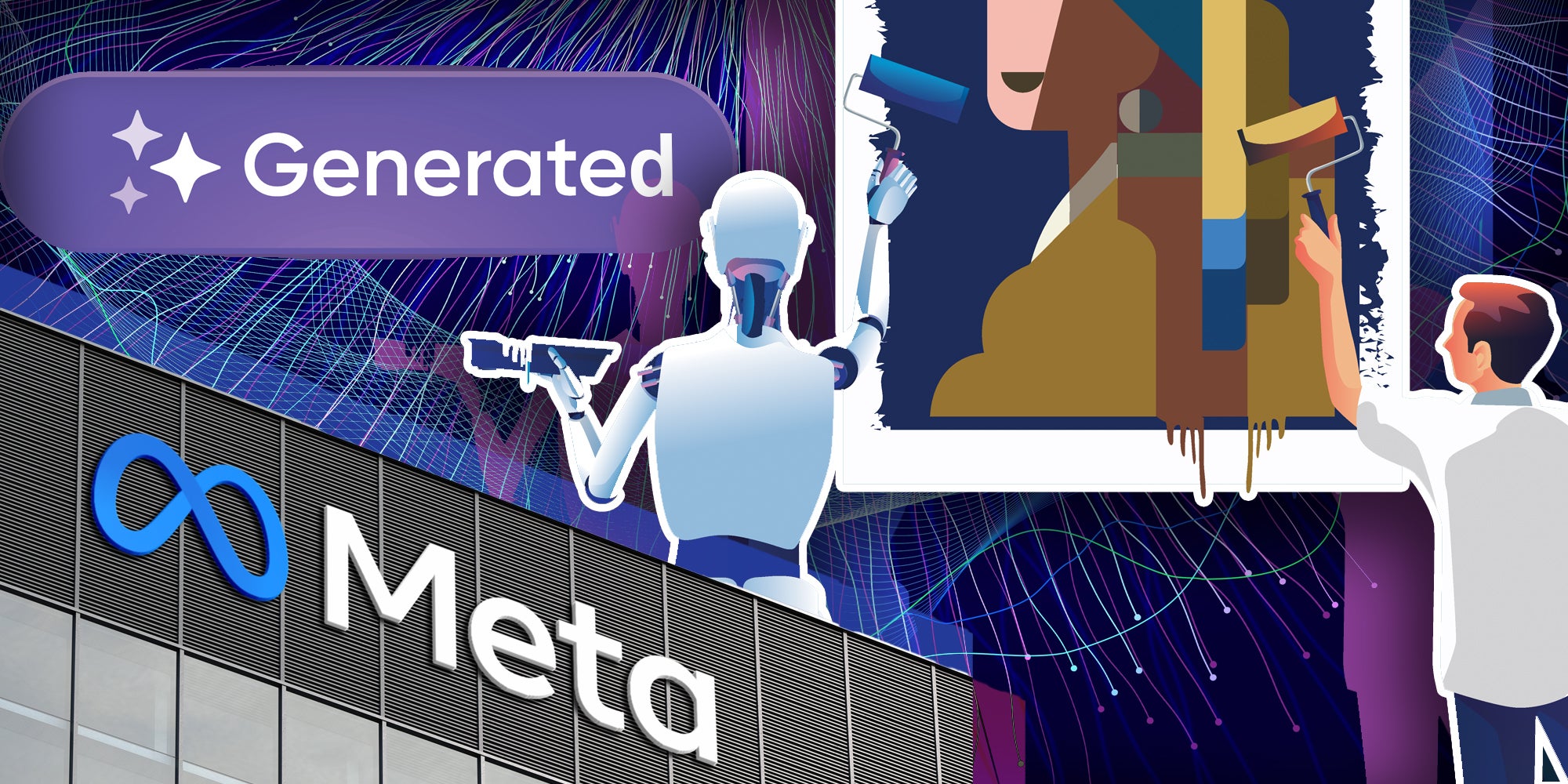
As election season heats up across the world, Meta has confirmed its plan to watermark AI-generated photos across Facebook, Instagram, and Threads.
Any users who fail to disclose whether a realistic video or audio post is AI-generated will soon face penalization from the platform. We don’t know exactly when this rule will start, but we can imagine it being enacted sooner rather than later.
According to Nick Clegg, Meta’s president of global affairs, these new measures are designed to “galvanize” Big Tech as the line between AI and reality gets harder to discern.
Currently, Meta applies an “Imagined with AI” watermark to pictures made with their Imagine AI generator. But it is set to require users to extend this watermark to other AI-generated photo tools, including OpenAI, Google, Midjourney, Adobe, Microsoft, and Shutterstock.
It’s currently unclear what watermarks Meta will particularly require, or if it will offer an easy-to-apply watermark like the “Imagined with AI” watermark.
In an interview with The Verge, Clegg also revealed that Meta is currently developing detection tools to identify synthetic media — even if the metadata has been altered to try and hide its source.
Clegg added that at this stage, it might be challenging for tech companies like Meta to successfully identify and watermark AI-generated content. There will naturally be things that slip through the net.
“For those who are worried about video, audio content being designed to materially deceive the public on a matter of political importance in the run-up to the election, we’re going to be pretty vigilant,” he said.
“Do I think that there is a possibility that something may happen where, however quickly it’s detected or quickly labeled, nonetheless we’re somehow accused of having dropped the ball?” Clegg continued. “Yeah, I think that is possible, if not likely.”
But despite this, Clegg reiterated that he wasn’t too worried about Meta being overrun with misinformation or AI deepfakes come election year.
“I think it’s really unlikely that you’re going to get a video or audio which is entirely synthetic of very significant political importance which we don’t get to see pretty quickly. I just don’t think that’s the way that it’s going to play out,” he said.
Nonetheless, it will soon become a requirement for video and audio posts on Meta platforms to be watermarked if they are made with AI. If users don’t comply, “the range of penalties that will apply will run the full gamut from warnings through to removal [of the post].”




